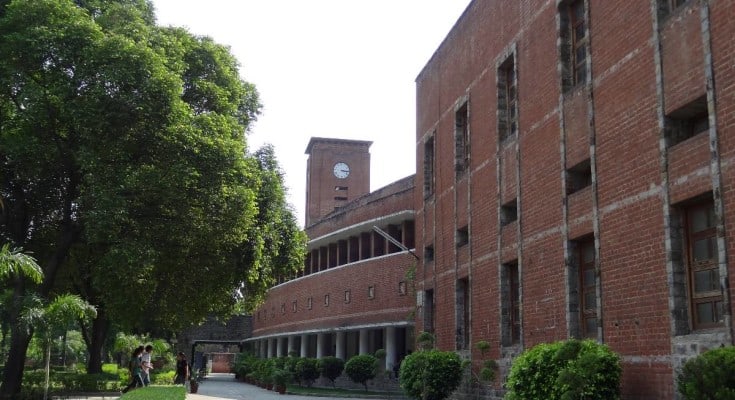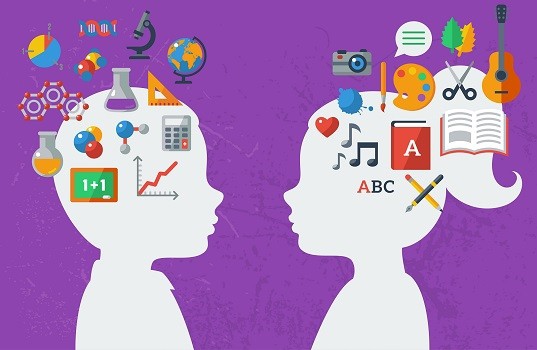SRES’19 brought to light the role of institutions in ignoring and normalising sexist conditioning. Read on to find out how.
On 18th and 19th January 2019, the Economics Society of Shri Ram College of Commerce (SRCC) organised the 2019-edition of the Shri Ram Economics Summit (SRES). SRES’19 was in the news for hosting the former President of India, Dr. Pranab Mukherjee, but his closing address had to be substituted with a panel of SRCC professors, due to the former’s absence owing to unavoidable circumstances.
The panel’s objective was to have a dialogue on the role of SRCC in tackling gender disparity and inequality issues.Including the staff heads of the Internal Complaints’ Committee (ICC), Ms. Reena Chadha, and the Women’s Development Cell (WDC), Dr. Monika Bansal, held deliberations that spiraled into a tokenistic appreciative rant, instead of an analytical discussion among academicians with a platform to influence. For instance, Ms. Chadha stated that the era of #MeToo had a significant impact on the way gender inequality gaps were to be bridged, but she also explicitly suggested in the same breath that SRCC had received no complaints in the wave of #MeToo. Another female professor was asked to share her experiences of working ‘freely and safely till 9 p.m.’ at SRCC, as compared to how the society treated her outside the campus for being an independent woman who reached home late.
The faculty head of ICC did encourage the students to report sexual harassment claims, but the majority of the discussion was focussed on SRCC’s pride in not being amid controversies pertaining to the movement, and the implied absence of gender disparity and discrimination in the campus. With an estimated strength of 2800 students, statistics imply that students from all over the gender spectrum must be enrolled at the college, claiming to present an absolute lack of problematic sexism.
Suhani Singhal, the first female President of the Finance and Investment Cell (FIC) at SRCC shared, “FIC is one of the very few societies where all posts were allocated on the basis of commitment and capabilities, and where the cabinet ended up having a female majority. Our seniors at FIC were fair, and a factor like gender was not given consideration. But a few people in the college had a hard time coming to terms with the fact that a female is leading a Cell oriented towards finance.” Nikita Bhatia, a student of SRCC,stated, “Most societies in SRCC have had male presidents for years. Enactus, the Dramatics Society, Debating Society, Economics Society, and Placement Cell have normally had male presidents, and this trend still continues. With the exception of English Literary Society or Fine Arts Society, which aren’t givenmuch priority in a Commerce college anyway, all other major roles are held by men. This isn’t meant to undermine their credibility or merit, but it only begs us to wonder why, in a college with almost the same number of male and female students, are these trends of disproportionality so evident. The idea here is that dogmatic gender roles are so deeply entrenched in our society that often we fail to pinpoint gender disparity because it has been normalised. I believethat asking questions as to why these trends are prevalent becomes important in discussions about gender disparity, especially at an event as televised and marketed as SRES’19.” To be proud of stating that the ICC did not receive complaints in the #MeToo wave about similar problematic actions is along the lines of survivor voice oppression; for self-blame, humiliation, and a fear of retaliation manifest in the survivor’s psyche after sexual abuse in many cases, and to present a seemingly perfect picture of their abuser’s house may instil more apprehension to speak up. According to Psychology Today, “Many (sexually assaulted college women) are afraid to report the rape to their college administration because of a long history of cases being mishandled.”
Thus, praises of how well the college has maintained its clean record status should be replaced with an acceptance of the truth of misogynistic cultural conditioning, so that the administration appears more approachable to them wronged students. Arundhati Roy summed up the methodical suppression- by-suggestion when she said, “There’s really no such thing as the ‘voiceless’. There are only the deliberately silenced
or the preferably unheard.”
Feature Image Credits: DU Beat
Anushree Joshi
(With inputs from Nikita Bhatia)


